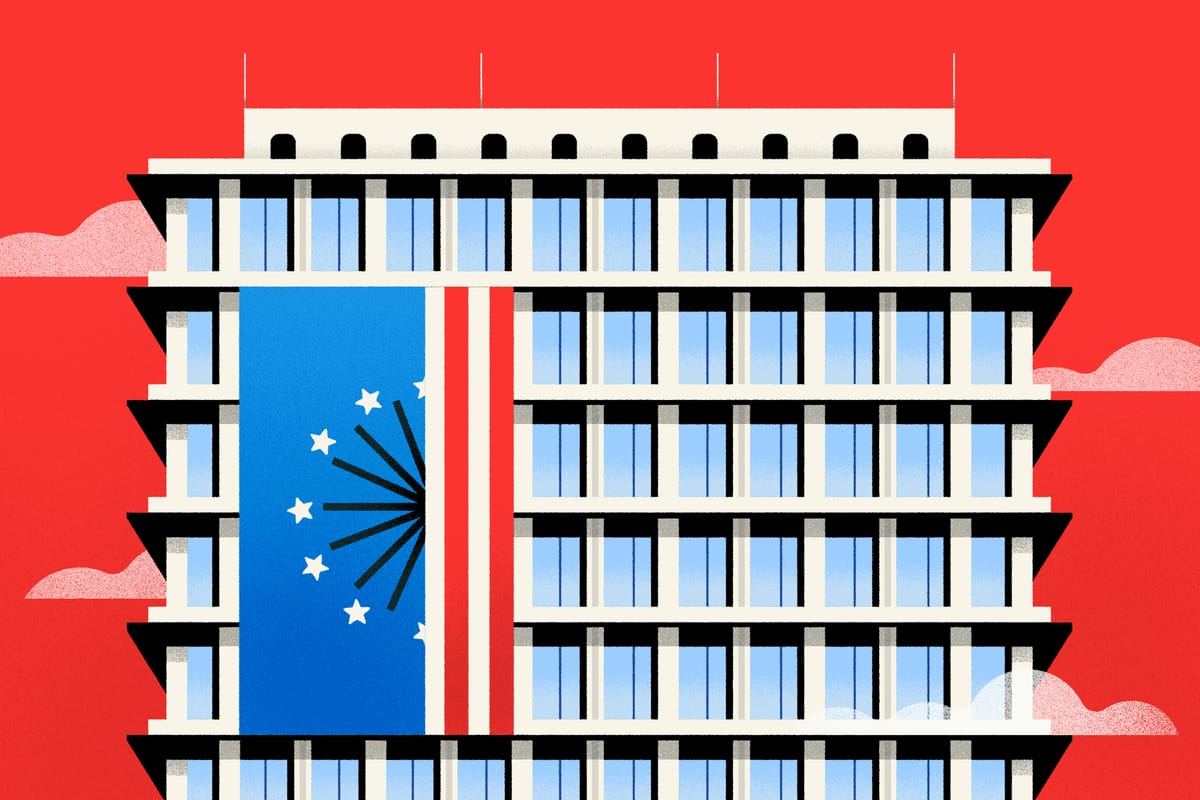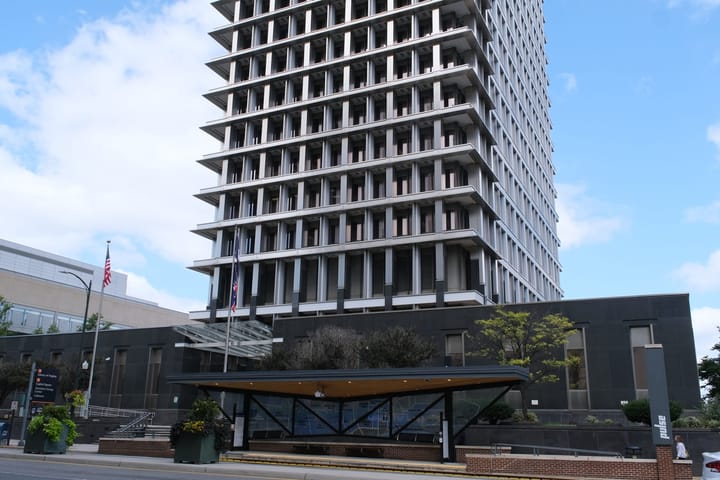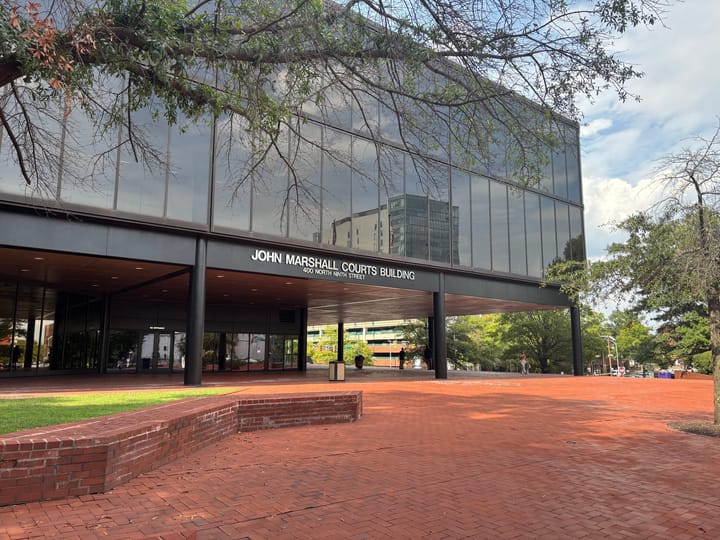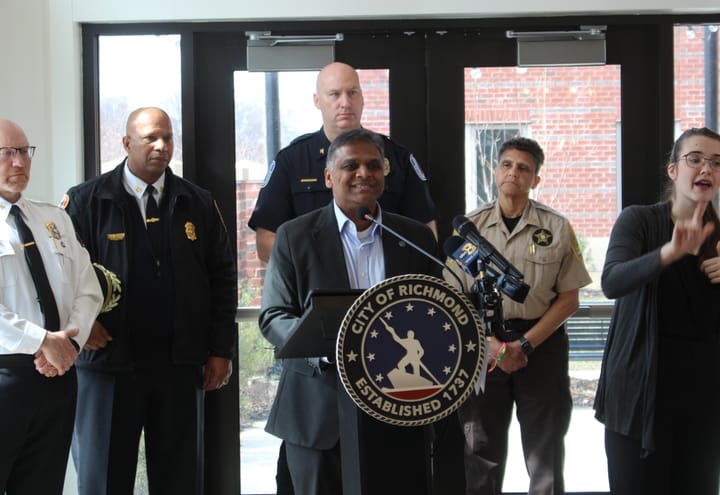
City Council OKs budget transparency measure to publicize department funding requests
The Richmond City Council and the general public will gain access to more details about the city’s budgeting process under a transparency measure approved Monday night over the objections of Mayor Danny Avula’s administration.
The Council voted 7-2 to pass an ordinance that will require City Hall to publish information to publish budget projections for each individual department and create a “side-by-side comparison” showing how those estimates compare with what the mayor decides to include in the budget proposal.
The ordinance specifies that information must be made available on the city’s website by Jan. 15 of each year, giving elected officials and the public more time to assess the city’s funding priorities months before the budget is approved in the spring.
“I think it’s a huge win for the city and the public,” Councilor Stephanie Lynch (5th District) said in an interview. “I think it’ll really help improve not only the way that our citizens engage with us but the way that our departments engage with our citizens.”
Lynch, a lead sponsor of the ordinance, had already enlisted six other Council members as supporters when the measure was first introduced in April.
Nevertheless, its passage Monday was somewhat surprising, because both Avula and a joint Council-administration budget task force had voiced opposition.
The detailed departmental budget estimates that will now be available online were previously treated as exempt from public disclosure. Though approved budgets are arguably the most sweeping and significant public document local governments create each year, Richmond’s mayor has a “working papers” exemption that allows — but doesn’t require — more confidentiality when budget decisions are not yet finalized.
Traditionally, Richmond officials have considered initial department budget requests to be working papers prepared only to inform the mayor’s decisions without being distributed to a wider audience.
Losing that privacy, the Avula administration warned, could lead to more politicization of the budget process and second-guessing of tough mayoral decisions on what’s worthy of funding and what’s not.
The Richmonder is powered by your donations. For just $9.99 a month, you can join the 1,000+ donors who are keeping quality local journalism alive in Richmond.
In a statement after Monday’s vote, Avula said he supported the budget task force’s recommendations to lengthen up the process and give the Council more time to amend the budget. But he said he remains opposed to the “dramatic change” of opening up his part of the process to outside scrutiny.
“The task force brings a great deal of wisdom, and I’d prefer we build on that rather than move forward with one-off proposals,” Avula said.
Some newer Council members objected to the makeup of the budget task force, saying it consisted mostly of administration officials and senior Council members less inclined to insist on new ways of doing business.
Council President Cynthia Newbille (7th District) and Councilor Ellen Robertson (6th District) were the two members who sided with the administration against the plan most of their colleagues supported.
Council members often complain they feel they’re often asked to rubber-stamp budgets approved mostly by the administration, with little power to change city spending in accordance with the feedback they hear from constituents.
“In order for us to really be able to do our due diligence in the budget process, having an understanding of the needs within each department is really critical,” said Councilor Kenya Gibson (3rd District) said at Monday’s meeting.
Council will gain more insight into the city budget at a time when there appears to be a growing appetite to re-examine how the city collects and spends taxpayer money.
The Council is currently debating whether to keep the city’s tax rate unchanged at $1.20 per $100 of assessed value or roll back the rate to $1.16 to shield residents from the higher bills that come with rising real estate tax assessments.
Council Vice President Katherine Jordan (2nd District) said she was voting for the budget transparency proposal partly so residents can see how hard it is to balance all the competing demands for taxpayer dollars.
“I hope that extra level of transparency will actually underscore why keeping the tax rate $1.20 is necessary,” Jordan said Monday.
The discussion on the tax rate issue will resume at the Council’s Oct. 14 meeting.
Contact Reporter Graham Moomaw at gmoomaw@richmonder.org
The Richmonder is powered by your donations. For just $9.99 a month, you can join the 1,000+ donors who are keeping quality local journalism alive in Richmond.






